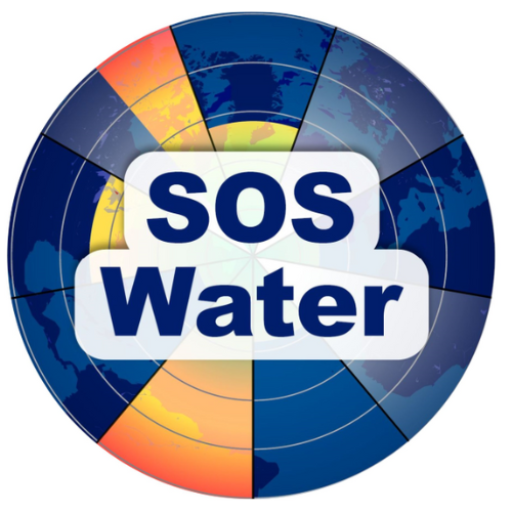PROJECT DELIVERABLES
D3.1 – Data inventory and EO data needs for water resources monitoring
Brechbühler, M., Nguyen Trung, N., Rotaru, S., Gijs, S. & Odermatt, D.
SOS-Water Deliverable Report, 31 March 2023
Abstract
The “Data inventory and EO data needs for water resources monitoring” (D3.1) consists of a public data inventory and publicly accessible report. The purpose of the Data Inventory outlined in this report is to give an overview of all state-of-the-art Earth Observation (EO) datasets available that can be potentially used for water resource monitoring. It covers all relevant services available from Copernicus (CGLS, CLMS, C3S), the ESA CCI (lakes, land cover, soil moisture), EUMETSAT (H-SAF) and other national and international organizations (e.g., NASA, NOAA, USGS, FAO). Within the SOS-Water project, this deliverable is intended to be used by all the project partners, to ensure knowledge exchange regarding the availability and limitations of project-relevant state-of-the-art EO datasets.
The objective of the present document is to review the datasets collected in the data inventory and determine their potential usability for the SOS-Water project. All collected datasets have been reviewed and augmented with key attributes, including spatio-temporal scales, limitations, accessibility and data provenance. These attributes were further used to identify the gaps and mismatches between EO data availability and the data needs posed by the project relevant hydrological models: the Community Water Model (CWatM) and PCR-GLOBWB 2.0. The gaps identified and outlined in this report will be prioritized and addressed with dedicated development efforts as part of the upcoming task “Improved EO applications” (T3.2).
For the full deliverable report please click here: SOS-Water_D3.1_Data inventory and EO data needs for water resources monitoring
D4.1 – Review of water indicators and gaps identified
Boubakri, N., Macian-Sorribes, H., Garcia-Prats, A., Rubio-Martin, A. & Pulido-Velazquez, M.
SOS-Water Deliverable Report, 30 September 2023
Abstract
The project report, titled “Review of Water Indicators and Gaps Identified” (D4.1), delivers a comprehensive overview of water resource and demand indicators relevant to the SOS-WATER initiative. This report, essential to Task 4.1, aims to establish a foundational set of indicators for effective water management and identify gaps in existing measurement frameworks. Through an extensive review, it classifies water indicators into categories, including meteorological, hydrological, and demand-based (socioeconomic, agricultural, environmental, industrial) types, each evaluated for its role in assessing water availability, quality, and use across diverse spatial and temporal scales.
A crucial outcome of the report is the identification of gaps within existing indicators, particularly the need for metrics that integrate environmental impact, social dimensions of water demand, and long-term resilience strategies. By addressing these limitations, the SOS-WATER project aims to develop innovative, context-specific indicators tailored for sustainable water management across varied ecosystems and socio-economic conditions. The report concludes by underscoring the importance of comprehensive data collection and stakeholder engagement to optimize water governance and support effective policy-making.
For the full deliverable report please click here: SOS-Water_D4.1_Review of water indicators and gaps identified
D6.1 – Communication, Dissemination, and Exploitation Plan (CDEP)
Schmidt, N. & Artuso, S.
SOS-Water Deliverable Report, 30 March 2023
Abstract
The main objective of the SOS-WATER Communication, Dissemination, and Exploitation Plan (CDEP) is to ensure that the project’s activities, results, and outcomes will be widely distributed to defined target groups and communities (scientific community, industry, policy-makers, broader public, and other stakeholders) through the chosen communication, dissemination, and exploitation channels and activities. The CDEP shall provide the SOS-Water partners with guidance on the planned communication and dissemination activities and their schedule, deliver information on the respective partners in charge for each activity, which tools and channels are available for communication and dissemination, and what the planned actions to exploit the results of the project are. It takes into account the preliminary information as presented in the project proposal under section 2.2, as well as the activities already developed and discussed during the first few months of the project.
The CDEP represents a dynamic document and will be further updated as required throughout the project runtime depending on the progress and evolution of the project, incorporating – where relevant – also the feedback of the larger SOS-Water community and the project officer. All relevant information on internal communication is discussed in the Project Management Guidelines Handbook (D7.1) and therefore not content of the present document.
For the full deliverable report please click here: SOS-Water_D6.1_Communication, Dissemination, and Exploitation Plan (CDEP)
D6.2 – Release of complete set of communication materials
Schmidt, N. & Artuso, S.
SOS-Water Deliverable Report, 30 March 2023
Abstract
The main objective of D6.2 “Release of complete set of communication materials” is to report about the setup of useful SOS-Water communication material, to inform the broader public, as well as the scientific community, industry, policy makers and any other interested stakeholders, about the project in an efficient, visually appealing, and professional way.
For the full deliverable report please click here: SOS-Water_D6.2_Release of complete set of communication materials
D7.1 – Project Management Guidelines Handbook
Schmidt, N. & Artuso, S.
SOS-Water Deliverable Report, 30 March 2023
Abstract
The SOS-Water Project Management (PM) Guidelines Handbook describes the various PM instruments and processes to manage, monitor and control the project. It provides a helpful overview for partners on the main elements of our daily project work, like:
- project governance structures, roles, responsibilities and processes;
- internal communication procedures and ways for sharing and storing documents;
- dissemination rules and quality standards;
- internal monitoring and official European Commission reporting;
- deliverables timetable, review, and quality processes.
Full deliverable report unavailable as classified as sensitive (SEN).
D7.2 – Data Management Plan
Kahil, T.
SOS-Water Deliverable Report, 30 March 2023
Abstract
This report describes the initial Data Management Plan (DMP) of the SOS-Water project. The purpose of this DMP is to provide an overview of all datasets collected and generated by the project and to define the management strategy of these datasets during and after the end of the project with the
purpose of making research data Findable, Accessible, Interoperable and Re-usable (FAIR). The SOSWater DMP follows the structure of the Horizon Europe DMP template. It reflects the status of the data that is collected, processed or generated and following what methodology and standards, whether and how this data will be shared and/or made open, and how it will be curated and preserved. This initial version of the DMP defines the general strategy of data management in SOS-Water for handling data management-related issues on the administrative and technical levels. This includes topics like data and metadata collection, publication and deposition of open data, and the data repository infrastructure. This DMP is a living document to be updated as the project implementation progresses and when significant changes occur.
For the full deliverable report please click here: SOS-Water_D7.2_Data Management Plan








Keep In Touch